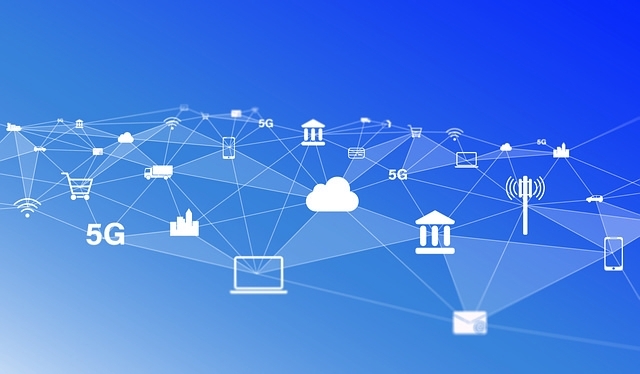

One of the aims of the telecommunications excellence hub hosted by the State University of Campinas is to build a new platform capable of deploying advanced 5G and 6G networks (image: Pixabay)
One of the aims of the telecommunications excellence hub hosted by the State University of Campinas is to build a new platform capable of deploying advanced 5G and 6G networks.
One of the aims of the telecommunications excellence hub hosted by the State University of Campinas is to build a new platform capable of deploying advanced 5G and 6G networks.

One of the aims of the telecommunications excellence hub hosted by the State University of Campinas is to build a new platform capable of deploying advanced 5G and 6G networks (image: Pixabay)
FAPESP Innovative R&D – On December 5, 2022, FAPESP and Ericsson unveiled the Smart Networks and Services for 2030 Research Center (SMARTNESS). The new telecommunications excellence hub is hosted by the State University of Campinas (UNICAMP). Researchers affiliated with the University of São Paulo (USP) and the Federal University of São Carlos (UFSCar) are also participating, as well as some 50 researchers affiliated with 15 other Brazilian academic institutions.
The initiative is supported by FAPESP under its program of Engineering Research Centers (ERCs), which leverages synergies between private enterprise and the academic sector to produce and disseminate world-class research with a significant economic and social impact via innovation. Twenty ERCs have been established since the program was launched in 2012.
Ericsson is responsible for the technological infrastructure to be used by the new ERC, whose research will be fully integrated with the research, development and innovation (RD&I) activities conducted by the company at its innovation hub in Indaiatuba, São Paulo state. In addition, the new ERC will act as Ericsson’s global research arm, dedicated to technical knowledge sharing and transfer.
“SMARTNESS will be unique in Brazil in terms of excellence in telecommunications and computer networks. Some of the most experienced researchers in the country will collaborate via the center on the construction of a new platform capable of deploying truly revolutionary 5G and 6G networks,” said Mateus Santos, head of research at Ericsson Brazil.
Next-generation mobile networks enable ever-higher levels of the Internet of Things (IoT), involving large numbers of tiny devices and novel cognitive architectures, he added. These resource-rich networks operate complex structures at ultrahigh speeds with very low latency and excellent reliability for end-users.
“Ericsson’s participation in this program will permit exploration of cognitive architectures oriented by artificial intelligence to build highly automated and secure data-based networks that are more energy-efficient,” Mateus said. “The expected scientific and technological advances will gradually transform networks into cognitive systems with the capacity to acquire new knowledge and act autonomously. They’ll become the foundational infrastructure for a truly digital society.”
According to Edvaldo Santos, head of RD&I for Ericsson LatAm South, this next-generation research hub, the first initiative of the kind in Latin America, will focus on the development of advanced mobile connectivity services from different perspectives relevant to industry, academia and society, leading to important R&D advances that will strengthen Brazil’s preeminence and competitiveness in the field.
“For us, this project is also an opportunity and a commitment to develop human resources capable of operating and optimizing the infrastructure, applications and services for the next generation of telecommunications networks, aiming to assure Brazil’s place among the top five developers of 6G networks,” he said.
Collaborative research
The SMARTNESS center will be led by Christian Rodolfo Esteve Rothenberg, a professor at UNICAMP’s School of Electrical Engineering and Computing (FEEC), with Maria Valéria Marquezini, a Master Researcher at Ericsson, as his deputy. INOVA, UNICAMP’s innovation agency, and the university’s Technological Innovation Nucleus (NIT) will provide support, especially in intellectual property management.
“Our aspirations for this hub include making it a special place to explore many of the research challenges and opportunities not fully covered elsewhere, focusing on strategic areas in which science and technology will have impacts by 2030, in collaboration with research communities in cloud computing and communications networks,” Rothenberg said, adding that some of these areas are programmability, elasticity, scalability and automation of next-generation smart networks and services.
Republish
The Agency FAPESP licenses news via Creative Commons (CC-BY-NC-ND) so that they can be republished free of charge and in a simple way by other digital or printed vehicles. Agência FAPESP must be credited as the source of the content being republished and the name of the reporter (if any) must be attributed. Using the HMTL button below allows compliance with these rules, detailed in Digital Republishing Policy FAPESP.





